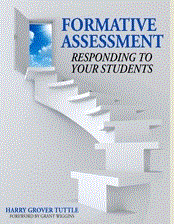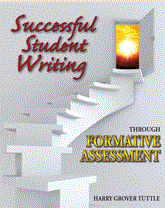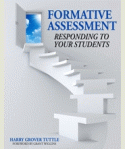Teachers understand that the grade in a course consists of many different factors such as homework, participation , projects, tests, etc. Blodget observes that sometimes grades reflect attitude, effort, ability and behavior (http://www.academia.edu/9074119/Grading_and_Whether_or_not_Grades_Accurately_Reflect_Student_Achievement). Equally important, a letter grade does not mean the same thing among grade level teachers. Does an “A” in Mrs. Brown’s 7th grade English class in Roxo Middle School equal an “A” in Mr. Cooper’s 7th grade English class in the same school? (tuttle, https://eduwithtechn.wordpress.com/2007/02/09/classroom-grades-dont-reflect-student-learning/)
The final grade in a course or even a ten week grade probably does not reflect the actual academic learning.These grades may not reflect the academic standards (Common Core, standards or proficiencies) for that course.
Badges allow teachers to focus specifically on student standards or proficiencies. A writing teacher may want badges to represent the various phases in the writing process. For example, a teacher might award an “idea generation” badge that indicates that the students can use at least two different brainstorming techniques to generate ideas for their writing. An “organizer” badge reflects that the students can use a graphic organizer or chart to plan out their writing. A “topic sentence” badge indicates that the student can consistently (three body paragraphs in the same essay) use topic sentences that introduce the purpose of the paragraph. An “Introductory paragraph” badge will demonstrate that the student can successfully write an introductory paragraph for two essays. A “revision” badge can show that the students can improve their writing by revising their own writing based on their own analysis and incorporating the formative comments of teachers or peers.
These writing badges represent specific writing proficiencies. Most students in their writing career have probably just obtained a letter gade on their writing which does not identify their strengthens. They probably have not received an overall writing grade. Their teachers may not have indicated the students’ growth over time in writing. However, badges quickly identify the students’ writing proficiencies and to-be-developed proficiencies.
Do you use grades or badges to measure your students’ progress on the standards or proficiencies?
Three books of interest:
Successful Student Writing Through Formative Assessment
English Common Core Mobile Activities ebook
Formative Assessment: Responding to your Students







 Formative Assessment and Successful Student Writing Through Formative Assessment by Harry Grover Tuttle
Formative Assessment and Successful Student Writing Through Formative Assessment by Harry Grover Tuttle
